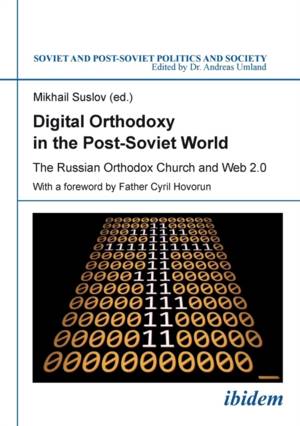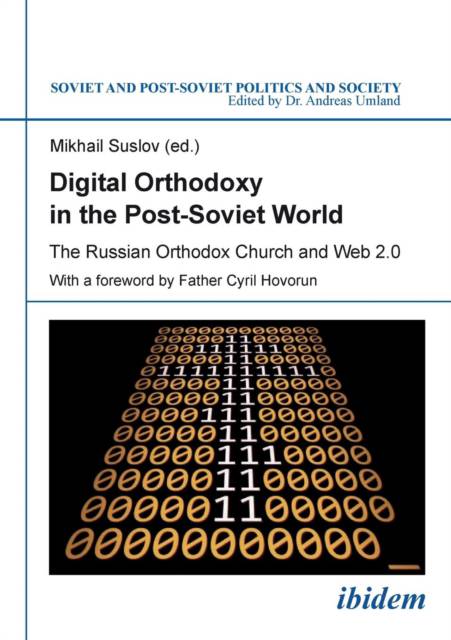
- Afhalen na 1 uur in een winkel met voorraad
- Gratis thuislevering in België vanaf € 30
- Ruim aanbod met 7 miljoen producten
- Afhalen na 1 uur in een winkel met voorraad
- Gratis thuislevering in België vanaf € 30
- Ruim aanbod met 7 miljoen producten
Zoeken
Digital Orthodoxy in the Post-Soviet World
The Russian Orthodox Church and Web 2.0
€ 41,95
+ 83 punten
Omschrijving
This volume explores the relationship between new media and religion, focusing on the WWW's impact on the Russian Orthodox Church. Eastern Christianity has travelled a long way through the centuries, amassing the intellectual riches of many generations of theologians and shaping the cultures as well as histories of many countries, Russia included, before the arrival of the digital era. New media pose questions that, when answered, fundamentally change various aspects of religious practice and thinking as well as challenge numerous traditional dogmata of Orthodox theology. For example, an Orthodox believer may now enter a virtual chapel, light a candle by drag-and-drop operations, send an online prayer request, or worship virtual icons and relics. In recent years, however, Church leaders and public figures have become increasingly skeptical about new media. The internet, some of them argue, breaches Russia's ?spiritual sovereignty? and implants values and ideas alien to the Russian culture. This collection addresses such questions as: How is the Orthodox ecclesiology influenced by its new digital environment? What is the role of clerics in the Russian WWW? How is the specifically Orthodox notion of sobornost' (catholicity) being transformed here? Can Orthodox activity in the internet be counted as authentic religious practice? How does the virtual religious life intersect with religious experience in the ?real? church?
Specificaties
Betrokkenen
- Uitgeverij:
Inhoud
- Aantal bladzijden:
- 352
- Taal:
- Engels
- Reeks:
- Reeksnummer:
- nr. 155
Eigenschappen
- Productcode (EAN):
- 9783838208718
- Verschijningsdatum:
- 1/06/2016
- Uitvoering:
- Paperback
- Afmetingen:
- 158 mm x 19 mm
- Gewicht:
- 460 g

Alleen bij Standaard Boekhandel
+ 83 punten op je klantenkaart van Standaard Boekhandel
Beoordelingen
We publiceren alleen reviews die voldoen aan de voorwaarden voor reviews. Bekijk onze voorwaarden voor reviews.










